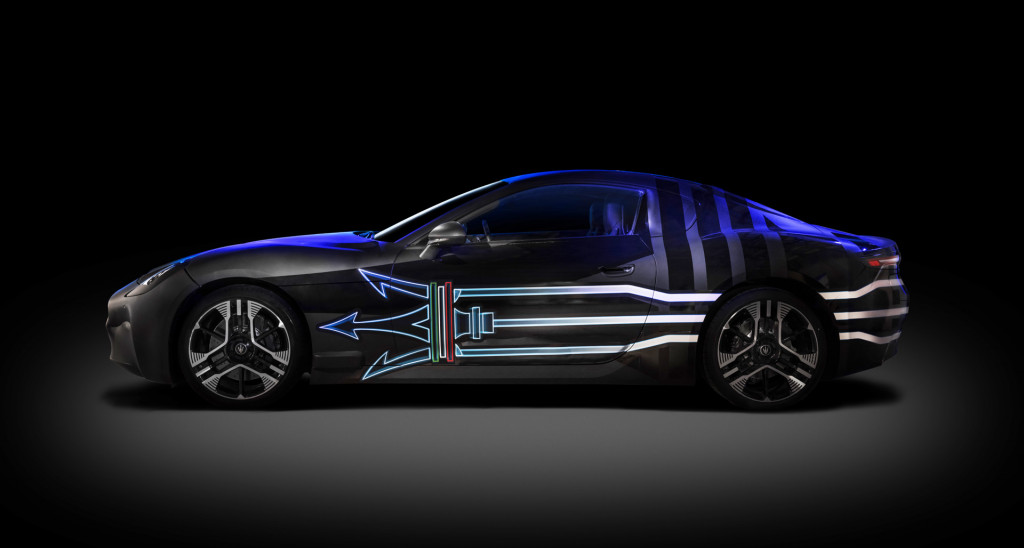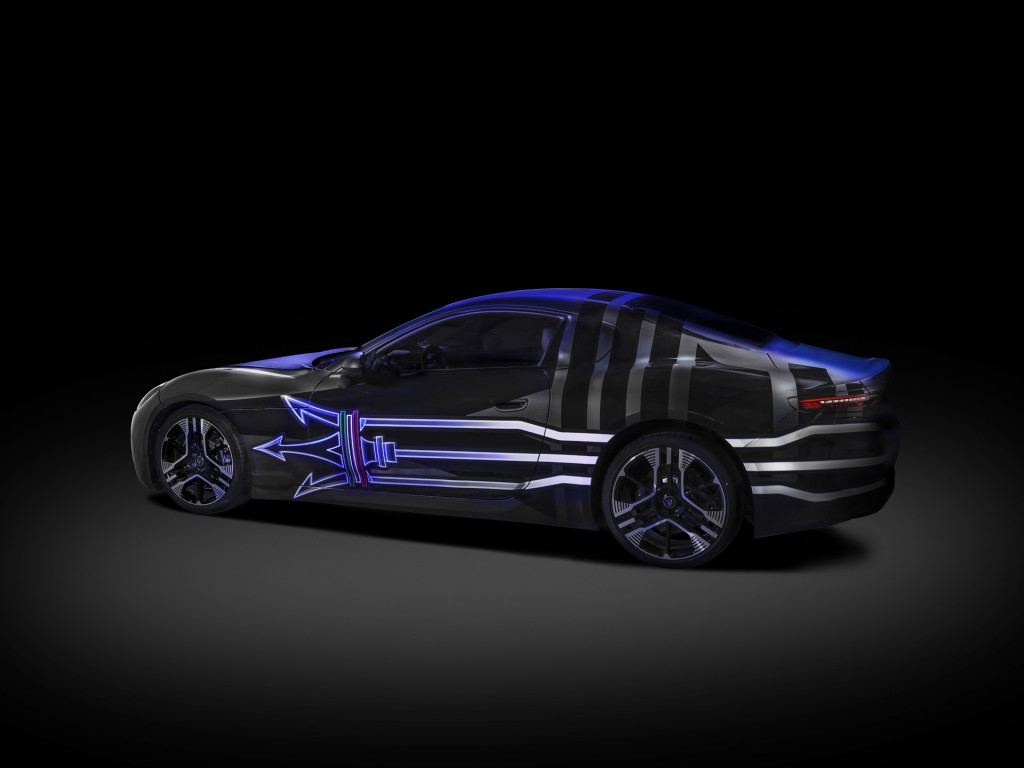Maserati plans to add all-electric versions of each of its models by 2025, and is aiming for an all-EV lineup by 2030, executives said in a recent press conference.
Electric models will be designated Folgore (Italian for "lightning"). The first one will be the GranTurismo Folgore coupe, set to debut in 2023, with a GranCabrio convertible version following later in the year. A three-motor powertrain will provide more than 1,200 horsepower, with a 0-60 mph time of under 3 seconds and a top speed of over 186 mph, according to Maserati.
The automaker also mentioned "top-class" charging enabled by an 800-volt electrical architecture using Formula E inverters. Maserati previously confirmed that it will enter the Formula E electric racing series in 2023.

Teaser for Maserati GranTurismo Folgore debuting in 2023
An electric version of the Grecale SUV will also arrive in 2023. That means will it will debut roughly a year after the gasoline version, which is scheduled to be unveiled March 22. Electric versions of the MC20 sports car, Levante SUV, and Quattroporte sedan will then arrive by 2025. Maserati isn't planning an electric replacement for the Ghibli sedan, however.
Maserati will have access to Stellantis' new STLA modular EV platforms, but executives told Motor Authority that the GranTurismo/GranCabrio, Grecale, and MC20 Folgore models will use Maserati-specific platforms. It's unclear if the Levante and Quattroporte EVs will follow that strategy, or use the STLA platforms.
Maserati had been an EV holdout, then it changed course toward electric vehicles in 2019. It had previously teased that the GranTurismo would be the first electric Maserati, and added mild-hybrid versions of the Ghibli and Levante for the European market.

Teaser for Maserati GranTurismo Folgore debuting in 2023
The Folgore electric models are part of a larger electrification push by Maserati parent Stellantis, which is proceeding despite apparent ambivalence from CEO Carlos Tavares. He previously said that EVs cost about 50% more to build than internal-combustion cars—a premium that's hard to pass along to customers.
He also called EV tech the choice of politicians—not the industry or, as he seemed to also be alluding, car enthusiasts perhaps. We're assuming Maserati will find a way to make its EVs as enchanting as its gasoline models and dispel those doubts.
